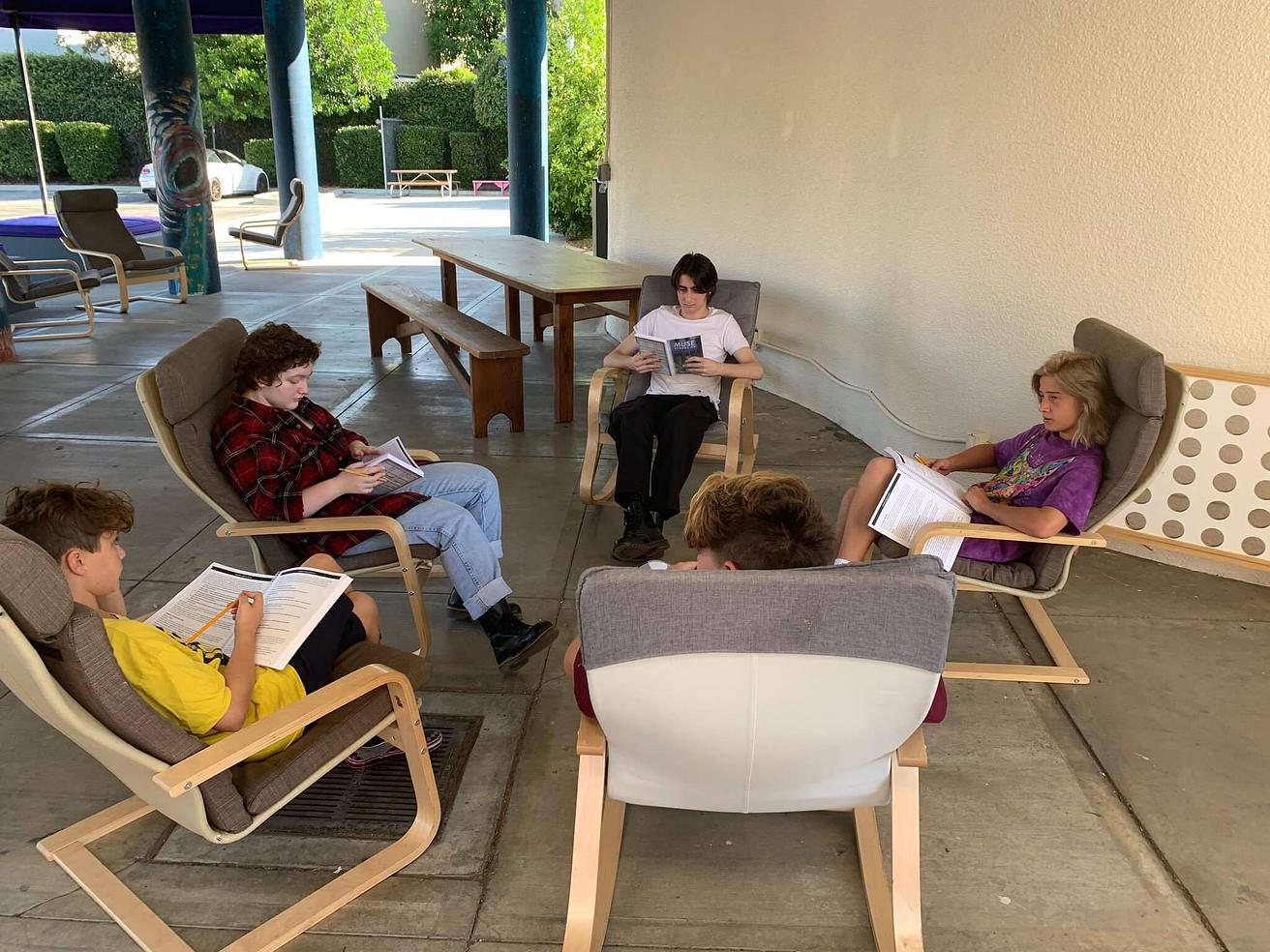“Progressive Education” can often gain the reputation of somehow lacking in academic rigor. While traditional practices such as rote memorization or hefty loads of homework are equated with building academically advanced students who will easily matriculate into Ivy league schools, progressive education models are often noted for their attention to social/ emotional learning or their use of current technology. However, when diving deeper into these innovative schools, one can begin to gain a sense of exactly how new-brain science and a deeper understanding of how students learn can lead to rich academic learning that more fully prepares students to become the outside-the-box thinkers our next generation will require. HundrED Ambassador Tressa Wyner from MUSE School in Calabasas, CA shares how she has found success in using innovative practices to form deep understandings of academic skills and standards for secondary grades.
We’ve all heard it: That groan followed by... “Why do we have to know this?” or “When will I ever use this in real life?”
While those questions can be frustrating, at MUSE, we embrace those questions. Why do they have to learn this? If a teacher can’t answer this with authenticity, I would argue that maybe they don’t have to learn this. When we can answer those questions for our students, we are more likely to hook them.
Math is about connections and communication. If students can relate concepts to real life, it becomes meaningful. As teachers, we want students to gain a true understanding of concepts, as opposed to simply memorizing steps to perform on this week’s test. This is why I try to connect our middle school math standards to the real world EVERYDAY. This is why I ask students about their interests and help them discover connections between math class and what they love. I give students a math equation and ask them to write their own story about it. Or I invite students to make up their own problems related to their passions or their personal lives.
To help students see the relevance of math in their lives, I created the poster below:
Finally, I ask students why they think they need to learn math. This gives them autonomy over their own motivation.
Once I have convinced my students that math is important, I tackle my next biggest obstacle. So many middle schoolers already have a negative self image when it comes to math. They say things like, “I’m just not a math person” or “being bad at math runs in my family” or “it’s too late for me; I couldn’t learn math in elementary school.” This breaks my heart. And it is simply not true. Even those who believe they are incapable of doing math can learn to use and understand math on a deep level. There is no such thing as a “math brain,” unless of course, we are willing to say we all have math brains! Lead by example—YOU are a math person, too.
This does not mean we never run into problems or get stuck. It just means that we realize the power of mistakes! Remarkable growth occurs in the brain when we make a mistake. Students live in a performance culture in which mistakes are not valued—or worse, they are punished. Instead, invite those who have made mistakes to present their process on the board and watch how many students say, “ooooh, now I see why that doesn’t work and we have to do xyz instead!” I point out my own mistakes all the time. By normalizing mistakes, students feel safe and comfortable to try things.

I often start my math class with an open ended question because it’s hard to have a growth mindset when dealing with short, closed questions. These types of questions are either right or wrong and send a message that a student is either capable of “getting it” or not. Sometimes I will even ask a question on some content in which I have not yet taught the lesson. Students jump in and try things by using their intuition. Math class is about learning, not about performing. I let kids try and figure things out their own way. I let them draw, make a chart, talk, build with blocks, anything to work through the process. I encourage students to give their answers in a variety of forms: words, pictures, graphs, and equations. I do this for as long as time permits. Whether a class spends 3 minutes or 3 days exploring a single open-ended question, the process will enhance their growth mindset. When we are working out problems like this, I don't initially say whether an answer is right or wrong. I collect all answers and let students defend their ideas and come to their own conclusions. Depth is more important than speed. I encourage kids to be skeptics and value questions. We talk. We discuss. We debate. I teach them to say things to each other like, “prove it” or “how do you know that is true?” or “convince me that my answer is wrong and yours is right.” Instead of asking, “does that make sense?” I ask “why does that make sense?” Or instead of “do you have any questions?” I try “what questions do you have?”
Another way to foster a growth mindset is to emphasize the process rather than the final result. Rather than say things like “you are so smart” I say things like, “It’s great you’ve learned that.” Rather than say, “Yes, perfect!” I say, “Congratulations—you used some great strategies!” Instead of “you got it right,” I’ll offer, “I’m proud you saw that through.” When giving feedback, I tell my students "I'm giving you this feedback because I believe in you / love you / think you are the bomb / value you." This way they know my motivation is not to nit-pick out the mistakes, but to help them grow and succeed to their fullest potential.
To sum up,
To join a community of inspiring educators like Tressa, check out our HundrED Ambassadors group!

